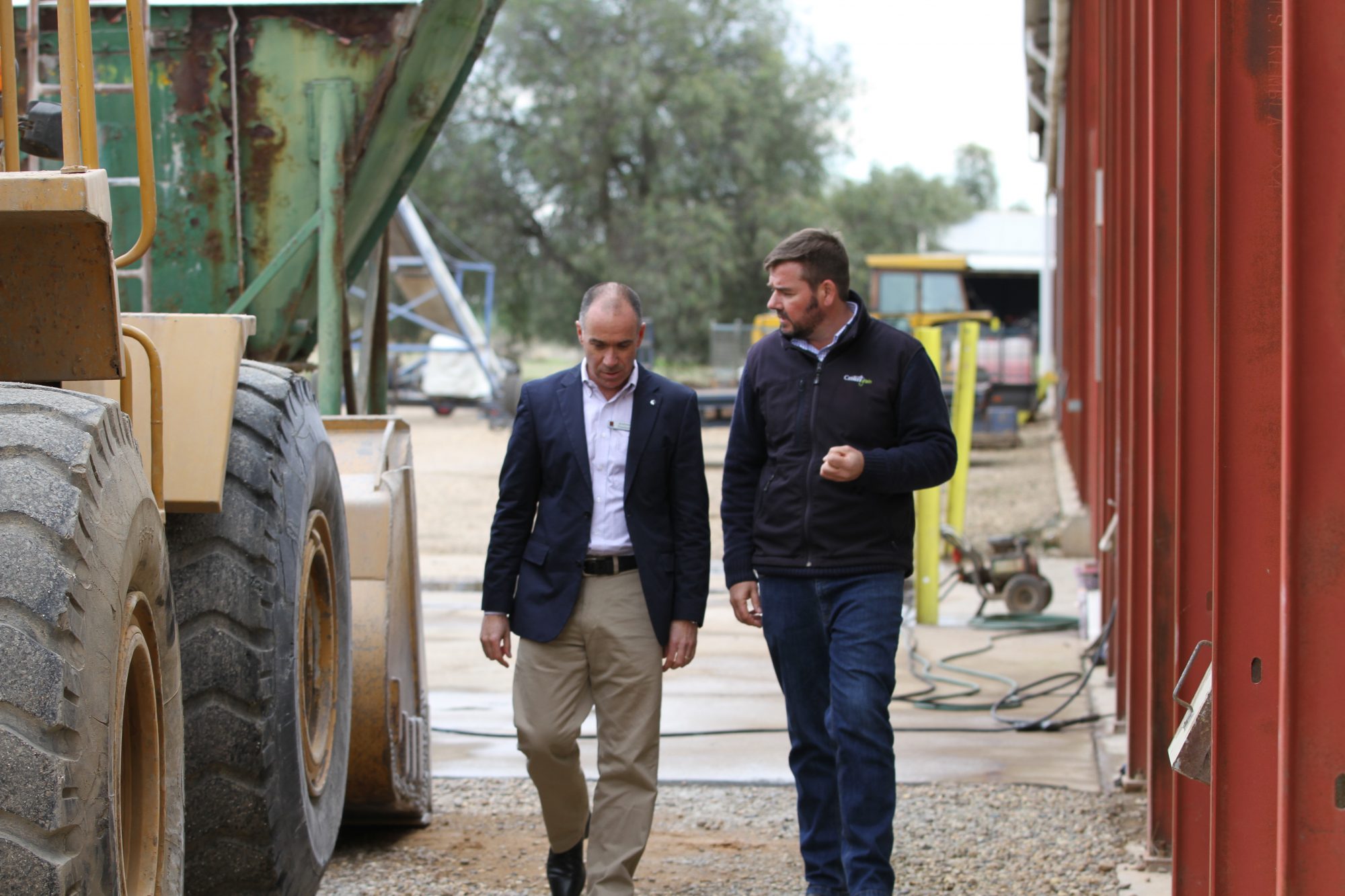Firmer consumer and steady outlook


Insight
We’ve listened and we’ve announced three ways we will serve our regional and rural customers better.
Rural challenges are real, and we need to determine how to support these areas better.
This is a message we’ve heard loud and clear from farmers and rural customers right across the nation – many of whom have been affected by drought conditions.
The Royal Commission and other inquiries reveal that in some cases we have lost touch.
And the reduction of bank branches in rural and regional areas is difficult for all. I read letters from customers about this emotive topic every week.
And every decision to close a branch is indeed difficult. I feel it deeply.

Recently we closed the doors of our Casterton branch in Western Victoria – a branch my great grandfather, WH Stevenson, managed. WH served the National Bank for 48 years, and I sometimes wonder what he would think of how the banks have treated regional Australia in recent times.
While we will maintain a focus on bigger population centres, like capital cities that provide growth, we also need to help create opportunities outside those areas.
We must focus on how we support rural and regional Australia.
We, at NAB, are determined to be THE bank for rural and regional Australia.
We acknowledge the inevitable change that will continue to occur in our rural and regional communities. Ultimately though, we want to help and we want to support growth.
So, we are asking ourselves the question – how do we serve better, and what do we need to do differently to achieve that?
As part of this, we are making three big commitments to our customers.
Firstly, that we will proactively offer our agri customers the financial benefit of being able to offset their Farm Management Deposit (FMD) against their agricultural lending.
FMDs play an important part in supporting farmers to manage and grow through fluctuating commodity prices and variable seasonal conditions. This offset will take the form of a discount to their lending interest rate.
This enables us to quickly respond to issues raised at the recent Government drought roundtable, where we were challenged to see what prompt action we could take.
We are writing to all our customers holding an FMD to advise them of this, and encourage them to contact us to let us know which loan to offset the deposit against.
Further, NAB also supports FMDs to be allowed as security for lending. Whilst this has some challenges, including legislative change, it would give farmers access to additional security as capital to lend against.
We have spoken to Federal Agriculture Minister David Littleproud on both these points, and we thank him for his advocacy and commitment to the rural sector.
Secondly, we will do more for those agri customers affected by drought. Such customers go through particular challenges and may fall into arrears and be unable to make their loan repayments. We want to help at this time, not make it more difficult.
So, we will now not charge a higher default interest rate if this does occur. This matter came up in a recent Royal Commission case, and we have decided that change needs to occur.
In addition, today we are making two donations to the Country Women’s Associations of New South Wales and Queensland, both to the value of $50,000. These donations will go to their drought relief funds which directly help farming families. We also will match donations of up to a further $50,000 each.
Thirdly, as communities in rural and regional Australia change, we wish to find better ways to support them, and to help them grow. Over the next few months, members of our senior team and I will visit towns and communities across the country to hear directly from people on their views.
Whilst we do a lot of things now, given the challenges, we need to ensure that these are the right things, and done in the best way.
This will include how we bring face-to-face banking services to them in a sustainable way – a part of which will be looking at the future of branches in remote areas. Perhaps there is more we can do to sustain those services, in conjunction with the community, such as partnerships and alliances. Or perhaps we need to consider changes to how we leave towns, if there is no alternative.
But this is not just about branches, this is about taking a wide view on what more we can do to assist our rural and regional communities to thrive in the future – and could include ag tech, video conferencing, and innovation more generally.
As part of this, we are pleased to have the help of two respected community figures – John Anderson AO, a sixth generation farmer and former Deputy Prime Minister and Chris Sarra who has received international acclaim for his work in pursuing better outcomes for Indigenous communities.
Both John and Chris will help challenge us on these questions. They will help us listen better, and consider wider views.
This is an exciting opportunity to work with some big people on a big question. After these visits, I will report back, to outline what we have heard, and what we will do, including what we will do differently.
This doesn’t mean that we won’t, from time to time, have to make difficult decisions.
But it does mean we will improve our consultation, improve our understanding of the trade-offs, improve our understanding of the knock-on effects on communities; and how we can do a better job.
We have backed businesses for 160 years, and now we need to challenge ourselves to be better for our customers, and in particular, for rural and regional Australia, who deserve the very best of our ideas and solutions.
This is partly because of our respect for their contribution to our nation, and partly because they have potential, and economic growth is there for the taking.
I am pleased with the decisions we have announced today, and am very much looking forward to our work over the next few months to explore these bigger questions, and how we can help.
This is an edited extract of a speech delivered by NAB CEO Andrew Thorburn at the International Hotel in Wagga Wagga, to approx. 120 customers, staff and community leaders.
© National Australia Bank Limited. ABN 12 004 044 937 AFSL and Australian Credit Licence 230686.